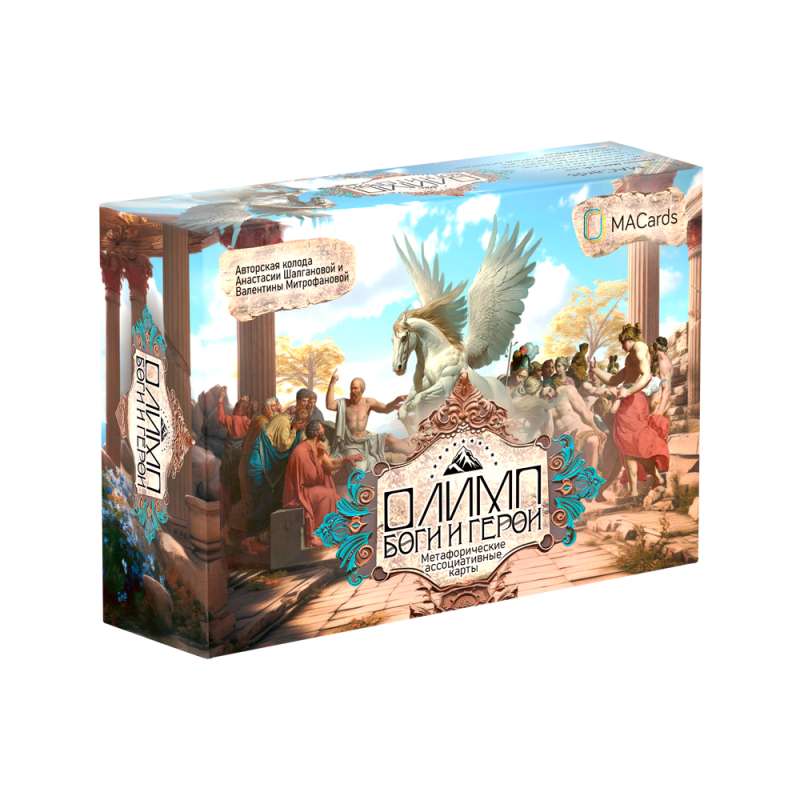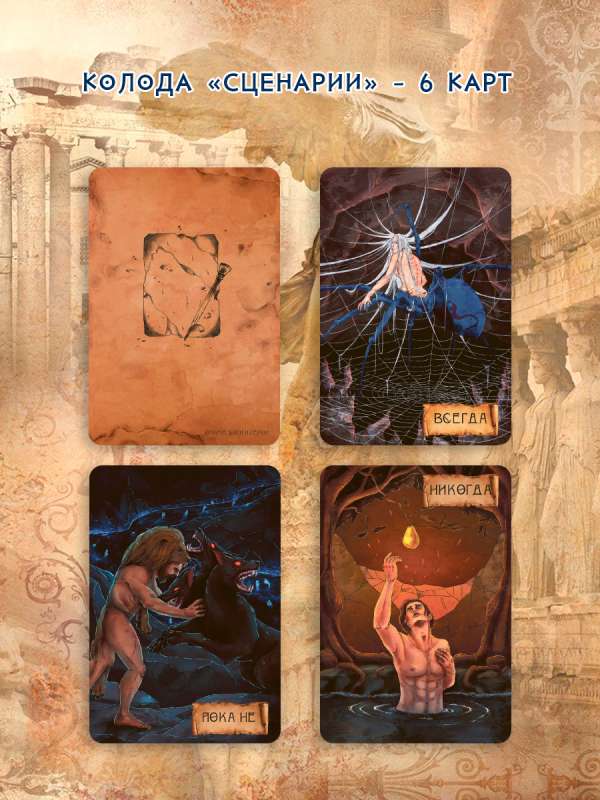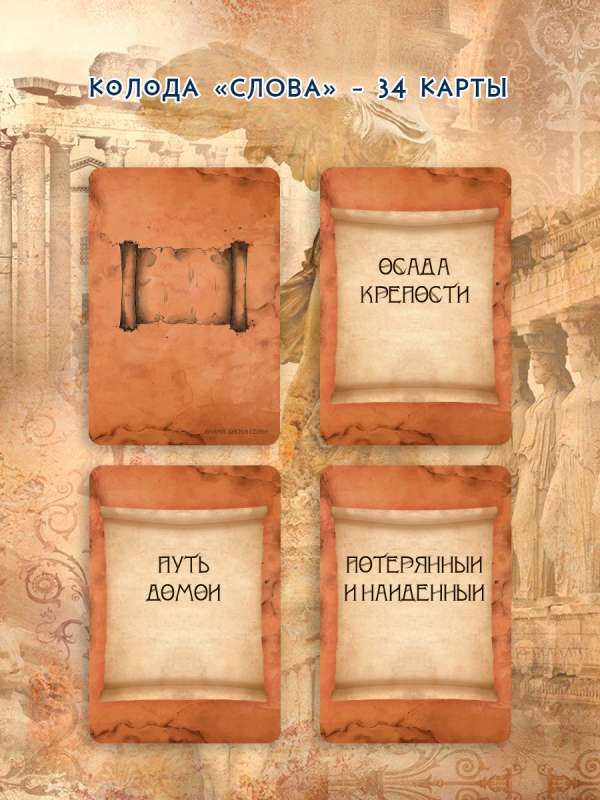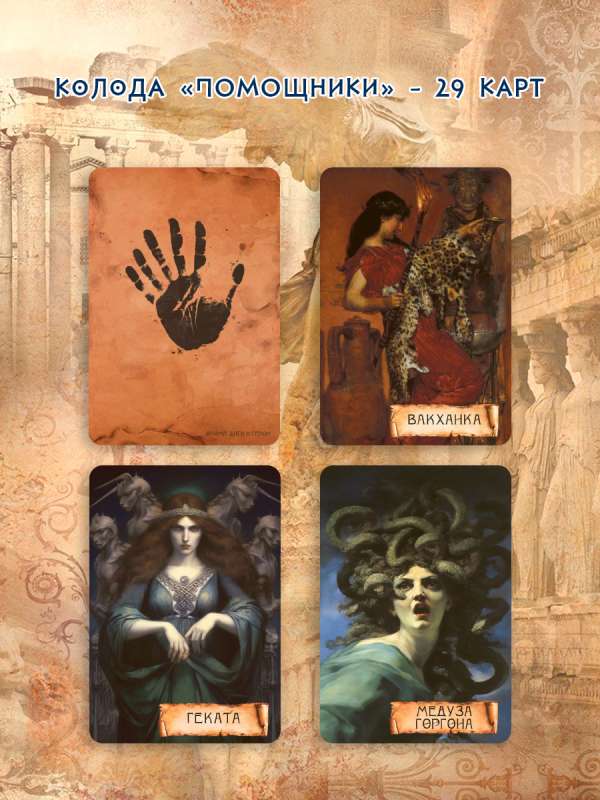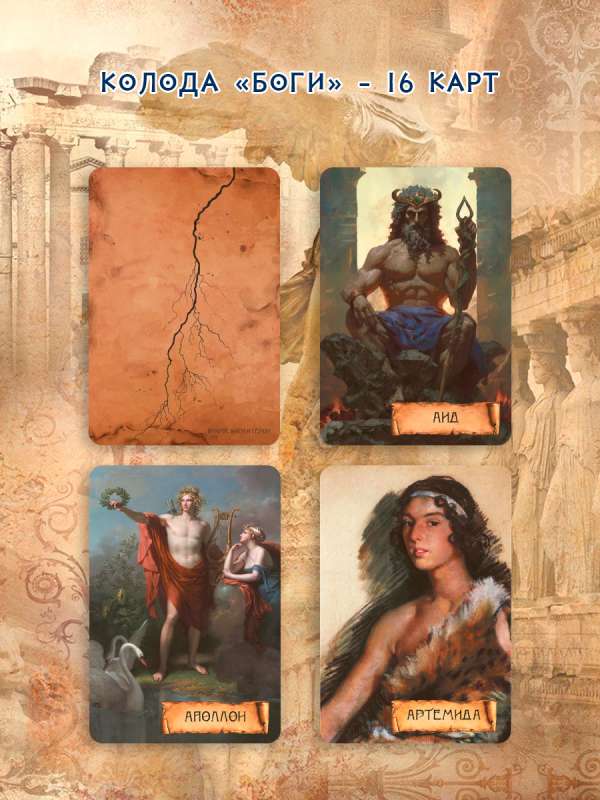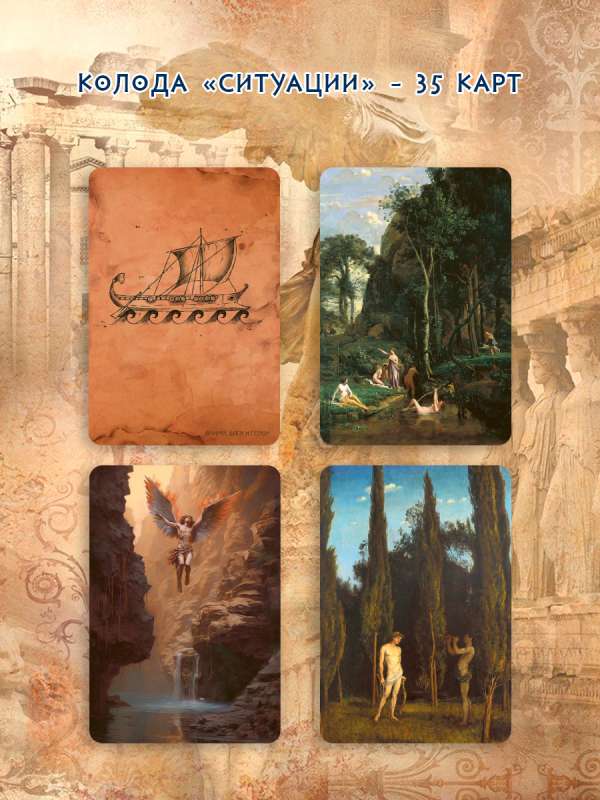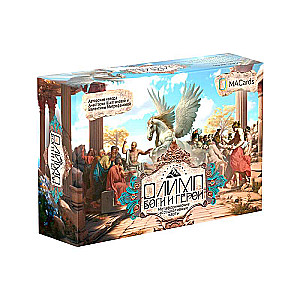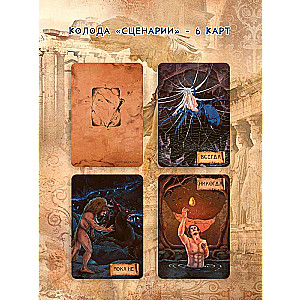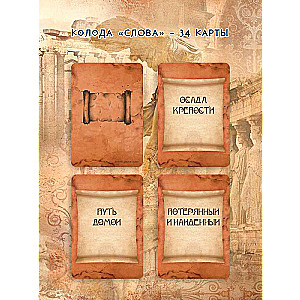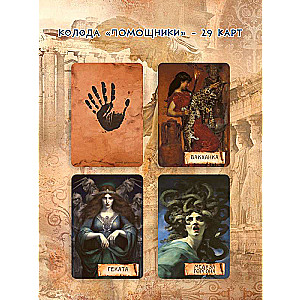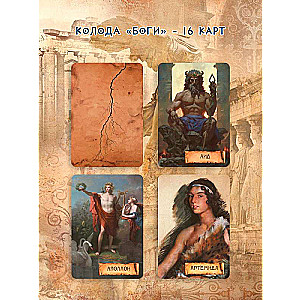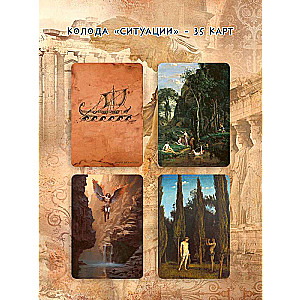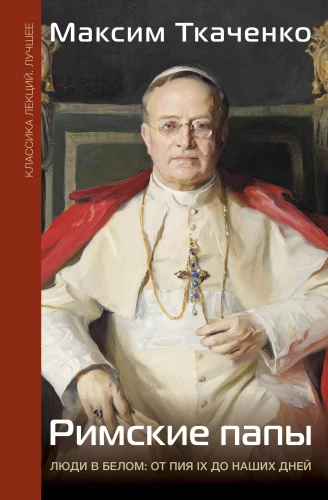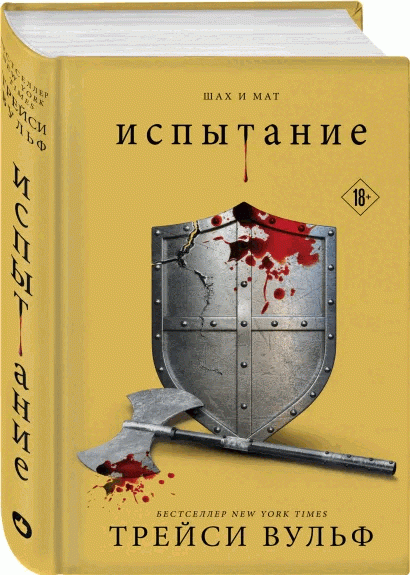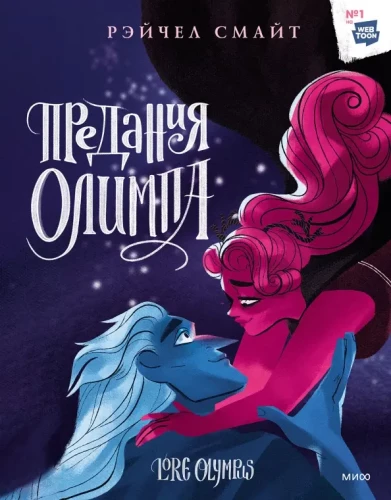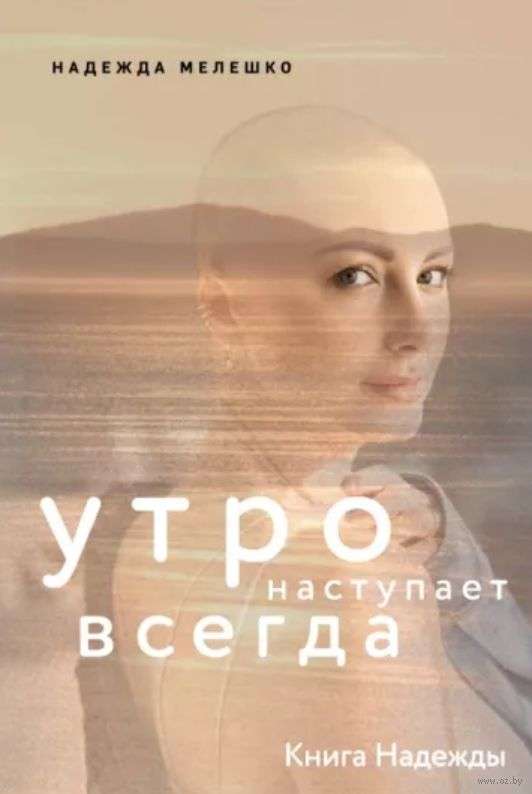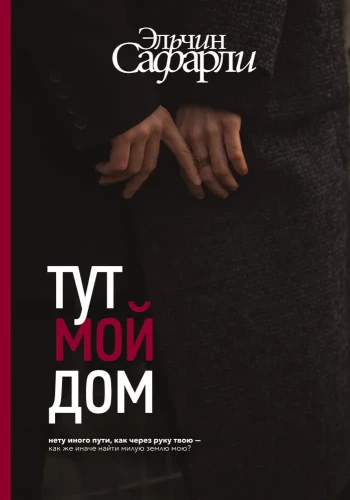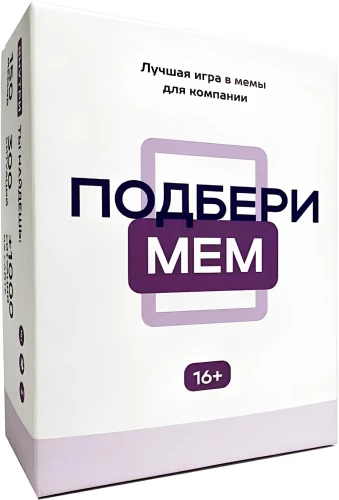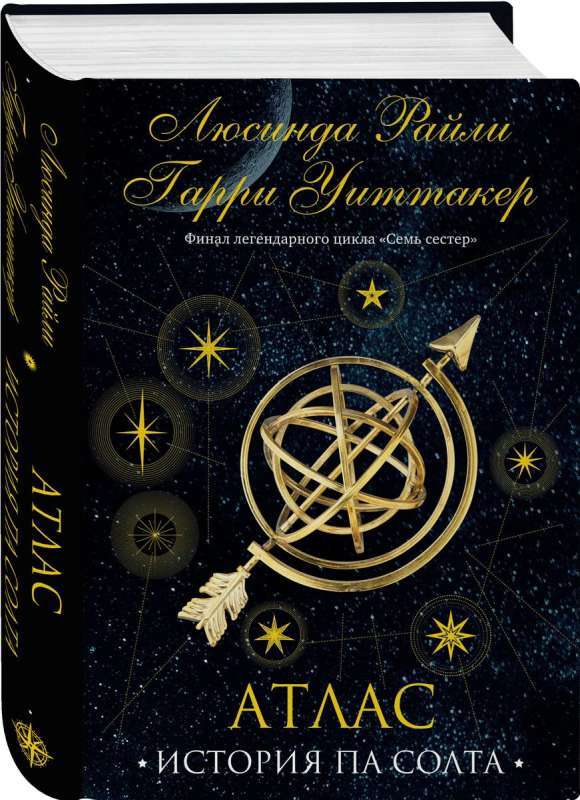Metaphorical Cards Olympus. Gods and Heroes
Author's deck by Anastasia Shalganova and Valentina Mitrofanova.
Complete set:
• Deck "Gods" - 16 cards
• Deck "Helpers" - 29 cards
• Deck "Scenarios" - 6 cards
• Deck "Situations" - 35 cards
• Deck "Words" - 34 cards
• Instruction with techniques
• Appendix "And a... little more about Olympus and its inhabitants" in electronic format (QR code for downloading is at the end of the instructions)
Working with the deck involves engaging with ancient Greek myths, based on theories of the collective unconscious and scenario processes. It is important for a psychologist, if necessary, to provide the client with mythological knowledge about the cards, integrating them into the client's situations for fantasizing and consideration.
From the authors
We decided to create a deck using paintings by great artists dedicated to mythological plots. Our work is based on the ideas of Carl Gustav Jung about archetypes, the collective unconscious, and psychological types, as well as the scenario concept by Eric Berne.
Psychology, in its methods, resembles archaeology: excavating the soul in search of the inner person — peeling away layer by layer, we move toward the depths of consciousness. Myths, which primarily represent a psychic phenomenon expressing the hidden essence of the soul, are invaluable in this work. Archetypal images have always accompanied humanity; they serve as a source of mythology, religion, and art. Mythology was the original way of processing archetypal images.
By working with myths, we consider the strong archetypes operating within the personality and external stereotypes that need to be adhered to. Understanding both of these factors helps to better understand what our conflicts consist of and how to achieve integrity as soon as possible. A person's values and beliefs are formed by culture, which is reflected in laws, customs, the distribution of power, and criteria for defining the value and status of each of us. By learning something about the archetypes of gods, we can restore the rejected parts of ourselves. This process is facilitated by dreams, memories, and myths that help us connect with our unconscious.
Understanding the "gods" will help parents see "who" their child is and appreciate their qualities. As a result, parents will feel more competent as they understand how their child feels, how the world relates to them, what their strengths are, what difficulties they face, and what help they need from others. Men and women often need to see their parents more clearly: sometimes to forgive, and sometimes — to understand. Perhaps understanding the gods and myths will help you create a more objective portrait of your father or mother.
The MAC "Olympus. Gods and Heroes" consists of five decks:
1. Ancient Greek Gods (back with lightning) – 16 cards
Zeus, Hades, Poseidon, Apollo, Ares, Dionysus (2 cards), Hermes, Hephaestus, Hera, Aphrodite, Demeter, Artemis, Athena, Hestia, Persephone.
These gods correspond to one of Jungian concepts based on mythological typology of personality demonstrating certain patterns of behavior and inclinations of a person. However, it is not necessary to focus specifically on this aspect when working with the deck. Below are some methods for working.
2. Helpers (back with six-fingered print) – 29 cards
Characters from ancient Greek mythology and history: Maenad, Hecate, Dryad, Helen of Troy, Cronus, Lernaean Hydra, Medea, Medusa Gorgon, Minotaur, Moirai, Muses, Narcissus, nymph Echo, Odysseus, Pandora, Pegasus, Penelope, Prometheus, Sirens, teacher Chiron, Charon, King Oedipus (2 cards), Circe, Erinyes (2 cards), Eros and Psyche. Also a card with the moon and a girl without inscription.
A helper (or obstacle) card can be drawn when, for example, a resource is needed. Or the client is having difficulty identifying the obstacle on the way to the goal.
3. Scenarios (back with a tablet and stylus) – 6 cards
The artist of the deck is Diana Plisova.
The deck consists of images of 6 mythological plots:
• "Always" — the myth of Arachne;
• "Until" — the myth of the twelve labors of Hercules;
• "After" — the myth of Damocles;
• "Almost" — the myth of Sisyphus;
• "Never" — the myth of Tantalus;
• "In search of reward" — the myth of Philemon and Baucis.
Working with this deck is intended according to the concept of Eric Berne, who used the names of ancient Greek characters and their corresponding myths to define people's life scenarios.
4. Situations (back with a ship) – 35 cards
The cards in this deck depict scenes from mythology and history.
Apollo chases Daphne; the contest between Apollo and Marsyas; Actaeon catching Artemis and her nymphs bathing; Aphrodite scolding Zeus; Virgil reading the "Aeneid"; Hercules and the Lernaean Hydra; Hermes lulling Argus; Hephaestus chaining Prometheus; the death of Adonis; the death of Hippolytus; the death of Orpheus; Dido's suicide; the sacrifice of Iphigenia; a menagerie with wild cats; the fall of Icarus; snakes kill Laocoon and his sons; Leda and the swan; Medea kills her son; Odysseus in Circe's palace; Orpheus and the beasts; Kimon and Pero (the story of a Roman's love); the hunt for the Calydonian boar; Perseus shows Medusa's head; Pygmalion and Galatea; captive Cassandra in the battle for Troy; the abduction of Persephone; the abduction of the Sabine women; Orestes' pursuit; bound Eros; the death of Socrates; the trial of Paris; Agamemnon in the theater; Philida and Demophon; Oedipus curses his son Polynices; Aeneas and Sibyl.
5. Words – 34 cards
The words are chosen based on Jorge Luis Borges' essay "Four Cycles" and Georges Polti's book "Thirty-Six Dramatic Situations" about eternal plot conflicts that form the basis of all dramatic works.
The deck contains one blank card. The blank card without words in response to the client's request may likely cause frustration. It is important to uncover the feelings underneath it, which will become valuable therapeutic material. It is also worth clarifying — what does this emptiness mean for the client? What can fill this space? How do these feelings relate to the request? When in life does the client experience them?
METHODS OF WORK
I. Exercise "Gods within us"
Rejected and accepted archetypal parts within the client
1. Draw a closed card from the "gods" deck. Activate it by asking the client questions:
• What do you see on the card? What is the god/goddess feeling? What is he/she thinking? Where is he/she looking? Where is he/she? What does he/she want? What does he/she like and dislike?
2. Emphasize the situation. Ask questions in the context of the information provided by the client:
• Why does this god/goddess need to be in this situation? What does he/she feel while being in this situation? What is he/she thinking?
3. Gently confront the client, relying on the knowledge of myths in the context of the given card and what the client has said.
• For example, the client's words: Aphrodite is dressing up in front of a mirror because she has to be beautiful, to correspond to the image. Confrontation question: Who does Aphrodite owe it to? Who has power over her, if she is a goddess? And so on.
4. Clarify what the client is close to in the character. And what repels:
• What do you like about this god/goddess? What do you dislike about this god/goddess?
5. Emphasize the client's experiences in connection with the card:
• And what do you feel during this? What are you thinking?
6. Clarify the parallel between the projection onto the card and the client's life:
• And how does this relate to your life?
7. Focus on the perspective of resolving the situation:
• What do you want to do about this? How does this resolution correspond to the reality in which you are?
8. Check whether the client's resolution is positive or negative. If negative, repeat points 6 and 7 with another resolution to be proposed by the client.
9. For the psychologist: identify the client's mythological archetype for further psychological work.
Complete set:
• Deck "Gods" - 16 cards
• Deck "Helpers" - 29 cards
• Deck "Scenarios" - 6 cards
• Deck "Situations" - 35 cards
• Deck "Words" - 34 cards
• Instruction with techniques
• Appendix "And a... little more about Olympus and its inhabitants" in electronic format (QR code for downloading is at the end of the instructions)
Working with the deck involves engaging with ancient Greek myths, based on theories of the collective unconscious and scenario processes. It is important for a psychologist, if necessary, to provide the client with mythological knowledge about the cards, integrating them into the client's situations for fantasizing and consideration.
From the authors
We decided to create a deck using paintings by great artists dedicated to mythological plots. Our work is based on the ideas of Carl Gustav Jung about archetypes, the collective unconscious, and psychological types, as well as the scenario concept by Eric Berne.
Psychology, in its methods, resembles archaeology: excavating the soul in search of the inner person — peeling away layer by layer, we move toward the depths of consciousness. Myths, which primarily represent a psychic phenomenon expressing the hidden essence of the soul, are invaluable in this work. Archetypal images have always accompanied humanity; they serve as a source of mythology, religion, and art. Mythology was the original way of processing archetypal images.
By working with myths, we consider the strong archetypes operating within the personality and external stereotypes that need to be adhered to. Understanding both of these factors helps to better understand what our conflicts consist of and how to achieve integrity as soon as possible. A person's values and beliefs are formed by culture, which is reflected in laws, customs, the distribution of power, and criteria for defining the value and status of each of us. By learning something about the archetypes of gods, we can restore the rejected parts of ourselves. This process is facilitated by dreams, memories, and myths that help us connect with our unconscious.
Understanding the "gods" will help parents see "who" their child is and appreciate their qualities. As a result, parents will feel more competent as they understand how their child feels, how the world relates to them, what their strengths are, what difficulties they face, and what help they need from others. Men and women often need to see their parents more clearly: sometimes to forgive, and sometimes — to understand. Perhaps understanding the gods and myths will help you create a more objective portrait of your father or mother.
The MAC "Olympus. Gods and Heroes" consists of five decks:
1. Ancient Greek Gods (back with lightning) – 16 cards
Zeus, Hades, Poseidon, Apollo, Ares, Dionysus (2 cards), Hermes, Hephaestus, Hera, Aphrodite, Demeter, Artemis, Athena, Hestia, Persephone.
These gods correspond to one of Jungian concepts based on mythological typology of personality demonstrating certain patterns of behavior and inclinations of a person. However, it is not necessary to focus specifically on this aspect when working with the deck. Below are some methods for working.
2. Helpers (back with six-fingered print) – 29 cards
Characters from ancient Greek mythology and history: Maenad, Hecate, Dryad, Helen of Troy, Cronus, Lernaean Hydra, Medea, Medusa Gorgon, Minotaur, Moirai, Muses, Narcissus, nymph Echo, Odysseus, Pandora, Pegasus, Penelope, Prometheus, Sirens, teacher Chiron, Charon, King Oedipus (2 cards), Circe, Erinyes (2 cards), Eros and Psyche. Also a card with the moon and a girl without inscription.
A helper (or obstacle) card can be drawn when, for example, a resource is needed. Or the client is having difficulty identifying the obstacle on the way to the goal.
3. Scenarios (back with a tablet and stylus) – 6 cards
The artist of the deck is Diana Plisova.
The deck consists of images of 6 mythological plots:
• "Always" — the myth of Arachne;
• "Until" — the myth of the twelve labors of Hercules;
• "After" — the myth of Damocles;
• "Almost" — the myth of Sisyphus;
• "Never" — the myth of Tantalus;
• "In search of reward" — the myth of Philemon and Baucis.
Working with this deck is intended according to the concept of Eric Berne, who used the names of ancient Greek characters and their corresponding myths to define people's life scenarios.
4. Situations (back with a ship) – 35 cards
The cards in this deck depict scenes from mythology and history.
Apollo chases Daphne; the contest between Apollo and Marsyas; Actaeon catching Artemis and her nymphs bathing; Aphrodite scolding Zeus; Virgil reading the "Aeneid"; Hercules and the Lernaean Hydra; Hermes lulling Argus; Hephaestus chaining Prometheus; the death of Adonis; the death of Hippolytus; the death of Orpheus; Dido's suicide; the sacrifice of Iphigenia; a menagerie with wild cats; the fall of Icarus; snakes kill Laocoon and his sons; Leda and the swan; Medea kills her son; Odysseus in Circe's palace; Orpheus and the beasts; Kimon and Pero (the story of a Roman's love); the hunt for the Calydonian boar; Perseus shows Medusa's head; Pygmalion and Galatea; captive Cassandra in the battle for Troy; the abduction of Persephone; the abduction of the Sabine women; Orestes' pursuit; bound Eros; the death of Socrates; the trial of Paris; Agamemnon in the theater; Philida and Demophon; Oedipus curses his son Polynices; Aeneas and Sibyl.
5. Words – 34 cards
The words are chosen based on Jorge Luis Borges' essay "Four Cycles" and Georges Polti's book "Thirty-Six Dramatic Situations" about eternal plot conflicts that form the basis of all dramatic works.
The deck contains one blank card. The blank card without words in response to the client's request may likely cause frustration. It is important to uncover the feelings underneath it, which will become valuable therapeutic material. It is also worth clarifying — what does this emptiness mean for the client? What can fill this space? How do these feelings relate to the request? When in life does the client experience them?
METHODS OF WORK
I. Exercise "Gods within us"
Rejected and accepted archetypal parts within the client
1. Draw a closed card from the "gods" deck. Activate it by asking the client questions:
• What do you see on the card? What is the god/goddess feeling? What is he/she thinking? Where is he/she looking? Where is he/she? What does he/she want? What does he/she like and dislike?
2. Emphasize the situation. Ask questions in the context of the information provided by the client:
• Why does this god/goddess need to be in this situation? What does he/she feel while being in this situation? What is he/she thinking?
3. Gently confront the client, relying on the knowledge of myths in the context of the given card and what the client has said.
• For example, the client's words: Aphrodite is dressing up in front of a mirror because she has to be beautiful, to correspond to the image. Confrontation question: Who does Aphrodite owe it to? Who has power over her, if she is a goddess? And so on.
4. Clarify what the client is close to in the character. And what repels:
• What do you like about this god/goddess? What do you dislike about this god/goddess?
5. Emphasize the client's experiences in connection with the card:
• And what do you feel during this? What are you thinking?
6. Clarify the parallel between the projection onto the card and the client's life:
• And how does this relate to your life?
7. Focus on the perspective of resolving the situation:
• What do you want to do about this? How does this resolution correspond to the reality in which you are?
8. Check whether the client's resolution is positive or negative. If negative, repeat points 6 and 7 with another resolution to be proposed by the client.
9. For the psychologist: identify the client's mythological archetype for further psychological work.
In stock
€ 34.79
Will be delivered to United States on 20 February (Fr):
By courier
from € 38.94
